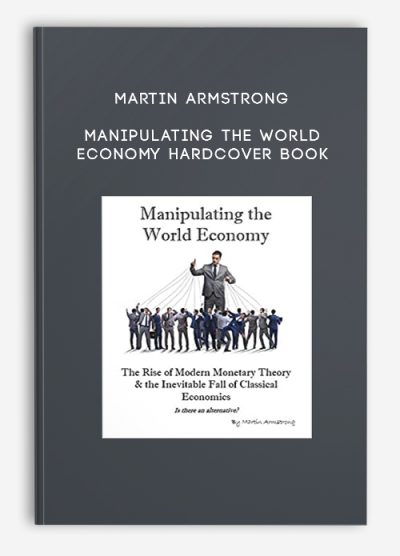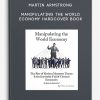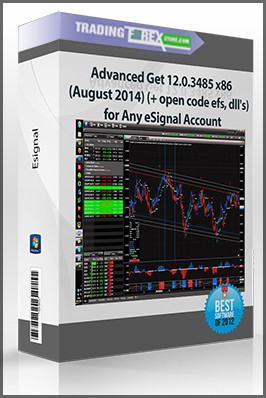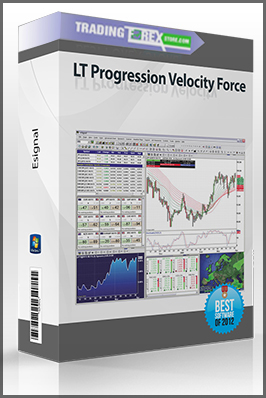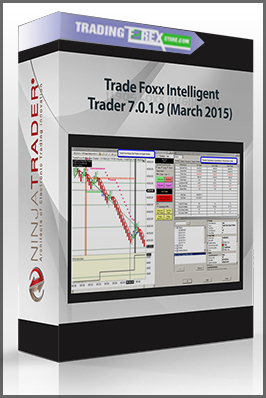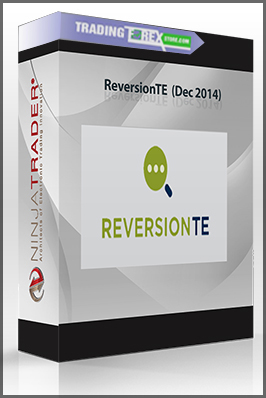Description
Get Martin Armstrong – Manipulating the World Economy – Hardcover Book on bestoftrader.com
Description:
The economic theories that dominated the field during the 20th century have failed us and empowered government to believe they can manipulate the business cycle. Every economic theory presented post-Marxism has assumed that the complexity of the business cycle can be reduced to a single cause and effect. To date, no attempt to manipulate the cycle has prevented a recession or financial crisis. We now face a truly monumental crisis. Central banks around the world are trapped. Their attempt to stimulate the economy through Quantitative Easing and rate manipulation has disastrously failed.
The central banks have primarily purchased government debt, effectively keeping governments on life support by allowing them to issue new debt at substantially lower rates. In addition to catastrophic Quantitative Easing policies, political fiscal spending on various programs and agencies has burdened governments with a debt that they can never repay. The future crisis is one created by government. This time, we are not likely to fix the problem without major political reform, which all governments will resist. These policies have led many to assume that government can freely create money without inflation. After creating trillions of dollars to buy government debt with no appreciable inflation, many conclude that everything has changed.
They are calling this the Modern Monetary Theory. If they are correct, then why bother to have taxes or borrow money continuously with no intention of paying off national debts? Governments, in modern theory, can simply create an endless supply of money to create a new modern version of Utopia. Can we throw away all economic history for an experiment that could unravel civilization if the theory proves to be wrong? What are the risks? Can it really be that easy? Are there any examples from the past that we can look to for answers?
Bond -Stock Trading course: Learn about Bond -Stock Trading
Bond trading definition
Bond trading is one way of making profit from fluctuations in the value of corporate or government bonds.
Many view it as an essential part of a diversified trading portfolio, alongside stocks and cash.
A bond is a financial instrument that works by allowing individuals to loan cash to institutions such as governments or companies.
The institution will pay a defined interest rate on the investment for the duration of the bond, and then give the original sum back at the end of the loan’s term.
A stock trader or equity trader or share trader is a person or company involved in trading equity securities.
Stock traders may be an agent, hedger, arbitrageur, speculator, stockbroker.
Such equity trading in large publicly traded companies may be through a stock exchange.
Stock shares in smaller public companies may be bought and sold in over-the-counter (OTC) markets.
Stock traders can trade on their own account, called proprietary trading, or through an agent authorized to buy and sell on the owner’s behalf.
Trading through an agent is usually through a stockbroker. Agents are paid a commission for performing the trade.
Major stock exchanges have market makers who help limit price variation (volatility) by buying and selling a particular company’s shares on their own behalf and also on behalf of other clients.

